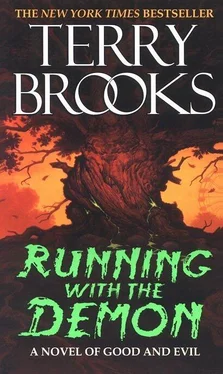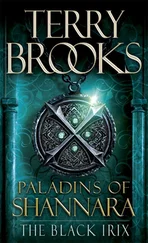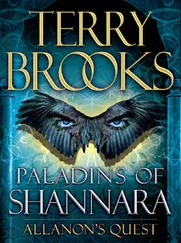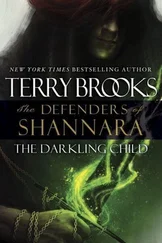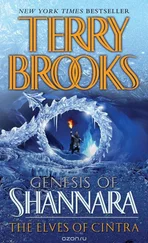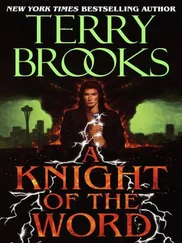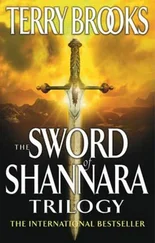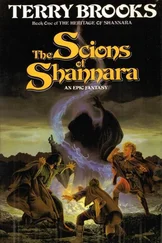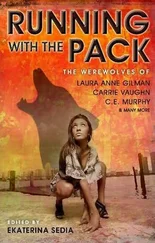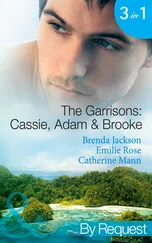"Well, she may have mentioned you, and we've just forgotten," Old Bob soothed, giving Gran a warning glance. Gran sniffed and sipped some more of her drink.
"She had a lot of friends while she was at Oberlin," Ross added suddenly, glancing around at their faces as if to confirm that what he was saying was true. He looked at Gran. "This roast is delicious, Mrs. Freemark. I haven't tasted anything this good in a long time. I'm very grateful you included me."
"Well," Gran said, her sharp face softening slightly.
"She did have a lot of friends," Old Bob declared. "Caitlin had a lot of friends, all through school. She had a good heart. People saw that in her."
"Did you know my father?" Nest asked suddenly.
The table went silent. Nest knew at once that she had asked something she should not have. Gran was glaring at her. Her grandfather was staring at his plate, absorbed in his food. John Ross took a drink of his water and set the glass carefully back in place on the table.
"No," he said quietly. "I'm sorry, but I never met him."
The dinner conversation resumed after a few moments and continued throughout in fits and starts, with Nest's grandfather asking questions of John Ross, Ross offering brief replies, and Gran sitting angry and still throughout. Nest finished her meal, asked to be excused, and left almost before permission was given. She walked out onto the porch and down the steps to the backyard. Mr. Scratch was sprawled on the lawn sleeping and Miss Minx was watching him with studied suspicion. Nest moved to the rope swing, seated herself in its weathered old tire, and rocked gently in the evening heat. She felt embarrassed and frustrated by her grandparents' reaction to her question and wondered anew why no one ever wanted to say anything about her father. It was more than the fact that he got her mother pregnant and never married her. That was no big deal; that happened all the time. It was more than the fact that he disappeared afterward, too. Lots of kids grew up in one–parent households. Or with their grandparents, like she was doing. No, it was something more, and she wasn't even sure that it was something anyone could actually explain. It was more like something they suspected, but could not put words to. It was like something that was possible, but they were refusing to look too closely at it for fear that it might be so.
A few minutes later John Ross came out the back door leaning on his cane, carefully negotiated the worn steps, and limped over to where she twisted and bobbed in the swing. Nest steadied herself as he came up, grounding her feet so that she could watch him.
"I guess that question about your father touched a sore spot," he said, his smile faint and pained, his eyes squinting as he looked off toward the approaching sunset. The sky to the west was colored bright red and laced with low–hanging clouds that scraped across the trees of the park.
Nest nodded without replying.
"I was wondering if you would walk me to your mother's grave," Ross continued, still looking west. "Your grandfather said it would be all right for you to do so. Your grandmother gave him one of those looks, but then she agreed, too." He turned back to her, his brow furrowed. "Maybe I'm misreading her, but I have the uncomfortable feeling she thinks she's giving me just enough rope to hang myself."
Nest smiled in response, thinking of Wraith.
Ross ran his hand slowly down the length of his staff. "To tell you the truth, I don't think your grandmother trusts me. She's a very careful woman where you are concerned."
Nest supposed that was so. Gran was fierce about her sometimes, so consumed with watching out for her that Nest would find herself wondering if there was a danger to her that she did not realize.
"So, would that be all right with you?" Ross pressed. "Would you be willing to walk me over to the cemetery?"
Nest nodded, climbed out of the swing, and pointed to the gap in the hedgerow. She led the way wordlessly, setting a slow pace so that he could follow, glancing back to make certain he was able to keep up. In point of fact, he seemed stronger and more agile than she had expected. She wondered what had happened to his leg, if there was a way she could ask him without being rude.
They crossed the yard, pushed through the gap in the hedgerow, and entered the park. The evening ball games were already under way, the diamonds all in use, the benches and grassy areas behind the backstops crowded with families and fans. She led Ross down the service road behind the nearest backstop to the crossing gate at the park entrance, then along the roadway toward the burial mounds and the cliffs. Neither of them spoke. The day's heat hung thick and heavy in the evening air, and there was little indication that the temperature would change with night's coming. The insects buzzed and hummed in dull cacophony in the shade of the trees, and the sounds of the ballplayers rose sharp and sudden with the ebb and flow of the games' action.
After a moment, she dropped back a step to walk beside him. "How long are you visiting?" she asked, wanting to know something more about him, about his involvement with her mother.
"Just a few days." His movements were steady and unhurried. "I think I'll stay for the fireworks. I hear they're pretty spectacular."
"You can sit with us, if you'd like," she offered. "That way you'll be with someone you know. You don't know anyone else in Hopewell, do you?"
He shook his head.
"This is your first visit?"
"This is my first visit."
They crossed the road at the divide and turned west toward the turnaround and the entry to Riverside. John Ross was looking off toward the cliffs, out to where the Rock River flowed west on both sides of the levy and the railroad tracks. Nest watched him out of the corner of her eye. He seemed to be seeing something beyond what he was looking at, his gaze distant and distracted, his expression riddled with pain. He looked almost young to her for an instant, as if the years had dropped away. She thought she could see the boy in him, the way he was maybe twenty years ago, the way he had been before his life had taken him down whatever rough road it was he had traveled.
"Were you in love with my mother?" she asked him suddenly.
He looked at her in surprise, his lean face intense, his green eyes startled. He shook his head. "I think I could have been if I had gotten to know her better, but I didn't get the chance." He smiled. "Isn't that tragic?"
They walked up through the spring–mounted children's toys toward the spruce groves. "You look like her," Ross said after a moment.
Nest glanced over at him, watching him limp alongside her, leaning on his staff, his gaze directed ahead to where they were going. "I don't think I do," she said. "I don't think I look like anybody. Which is just as well, because I don't much like the way I look, just at the moment."
Ross nodded. "We're our own worst critics, sometimes." Then he cocked an eyebrow at her. "But I like the way you look, even if you don't. So sue me.'"
She smiled in spite of herself. They passed through the spruce trees to the turnaround and the cliffs. There were two cars parked at the cliff edge and a family on the swings nearby.
She thought back to Bennett Scott and the feeders, picturing it in her mind, remembering the night and the heat and the fear. She thought about Two Bears and wondered suddenly if he was there in the park again. She glanced about to see if she could spy him, but he was nowhere in sight. She let her thoughts of Two Bears and the spirits of the dead Sinnissippi drift away.
She led Ross to the gap in the fence line and through to the cemetery beyond. They walked along the edge of the blacktop roadway, through the rows of marble and granite tombstones, across the immaculate grass carpet, and under the stately, silent old hardwoods. The mingled scents of pine and new–mown grass filled the air, rich and pungent. Nest found herself strangely at ease. John Ross made her feel that way. The longer she was with him, the more comfortable she felt–as if she had known him a long time rather than for only a few hours. It was in the way he talked to her, neither as a child nor as an adult, but simply as a person; in the way he moved, neither self–conscious nor protective of his damaged body, not favoring it in an obvious, discomforting way, accepting it as it was; and mostly in the way he was at peace with the moment, as if only the here and now mattered, as if taking this walk with her were enough and what had gone before or what would come after had no place in his thoughts.
Читать дальше
